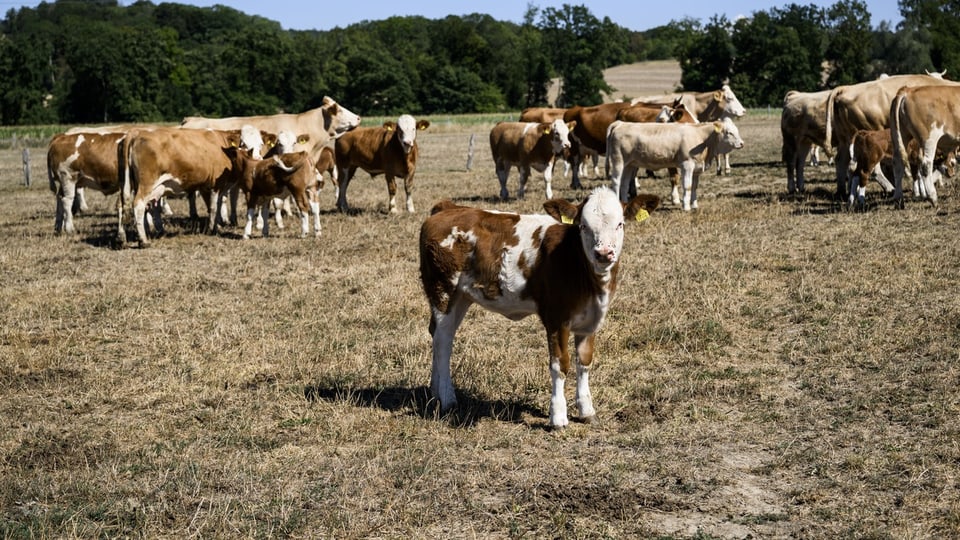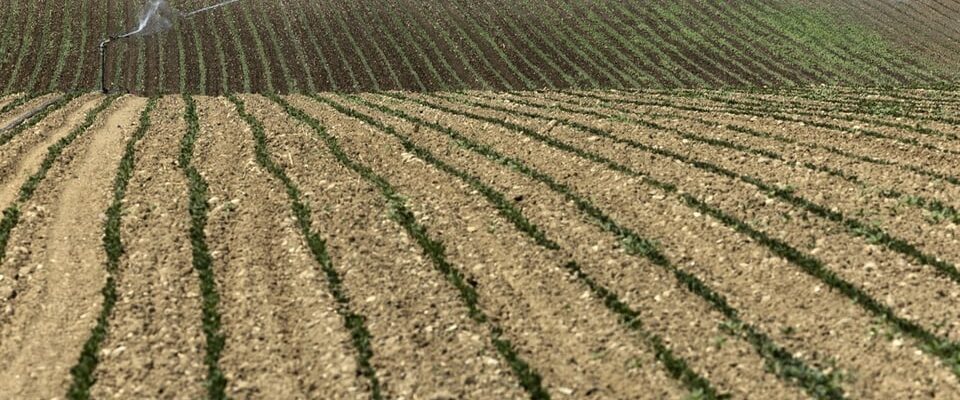Contents
In an interview, future SVP President Marcel Dettling doubts that humans are responsible for climate change. Climate expert and ETH professor Reto Knutti classifies.
Marcel Dettling will most likely be elected as the new president of the SVP at the SVP delegates’ meeting on March 23rd: the farmer from the canton of Schwyz is the only one running for the office. At the weekend he spoke in an interview with “NZZ am Sonntag” in detail and pointedly on the subject of climate change – and his statements caused a lot of incomprehension on social media – including among fellow politicians.
In this interview, Dettling mostly presents climate change as something positive. For example, he personally prefers it when it is warmer. And: Climate change would actually help farmers. Dettling further doubts that humans are the main cause of climate change. He describes measures such as price increases for fuel and electricity to combat climate change as “charlatanry”. Because climate change cannot be stopped, it is now a matter of humanity adapting to the changing climate – as it has always done.
ETH professor Reto Knutti, one of Switzerland’s leading climate researchers, classifies Marcel Dettling’s most important statements.
Statement 1
If you now simply blame humans for global warming, it is a new form of witch hunt.
Dettling’s statements make it clear: he doubts that humans are the main cause of climate change. Rather, there have always been climate changes and we just have to come to terms with them. Climate researcher Knutti says: “Climate change today is practically 100 percent caused by humans, research has long agreed on this.”
The physical principles of the greenhouse effect have been known for over 100 years. According to Knutti, science first warned governments about climate change in the 1950s. “The observations are now so clear that there is no longer any scientific discussion that humans are causing climate change.”
Legend:
In the summer of 2022, there was drought in large parts of Switzerland (August 2022, Meyrin VD).
Keystone/Jean-Christophe Bott
Statements 2
A discussion about good or bad is of no use, we cannot stop climate change.
You make electricity and fuel more expensive and you have the feeling that you are changing the climate. This is charlatanism. (…) Such measures will hardly achieve anything.
“That is factually wrong,” says Knutti about the statement that we cannot stop climate change. It is true that climate change can no longer be reversed and that the climate, for example, cannot be turned back to the way it was in 1900. But: “Future climate change will be entirely determined by future emissions. So if we were to stop CO₂ emissions worldwide today, we could limit climate change at the current level.”
According to Knutti, it depends on our current and future behavior at what level we want to limit global warming. Of course, CO₂ emissions cannot be completely reduced overnight. And Switzerland cannot do this alone. However, there are many signs that the necessary technical and economic transformation of society to stop climate change could work. “It is also a problem of the political process.”

Legend:
A dried out pasture in the hot summer of 2022.
Keystone/Jean-Christophe Bott
Statement 3
Global warming is not bad for farmers. (…) We can breed new varieties that are more drought-resistant, expand water intakes and much more.
“That is largely wrong,” says Knutti. A temperature half a degree higher leads to slightly faster growth for many plants. However, if the temperature increases by four degrees, it will become too hot for many plants grown in Switzerland. “At some point, potatoes will no longer grow, for example.”
The increasing dryness is also particularly problematic: it rains less and evaporation increases. This leads to crop losses. In hot summers like 2022, agriculture suffers accordingly. Feed production in particular is vulnerable to water shortages. This is how one shows A study of roughage yields from 1990 to 2021 by Agroscope and the Swiss Farmers’ Association (SBV) shows that in hot summers, dryness in meadows and pastures causes yield losses of 30 to 40 percent. According to Knutti, it is impossible to combat drought across the board with irrigation. “We don’t have the water for that.” With the exception of viticulture, negative effects can be expected practically everywhere in agriculture due to the drought.
Marcel Dettling could not be reached by SRF today to provide further details on his statements in the interview with “NZZ am Sonntag”.
